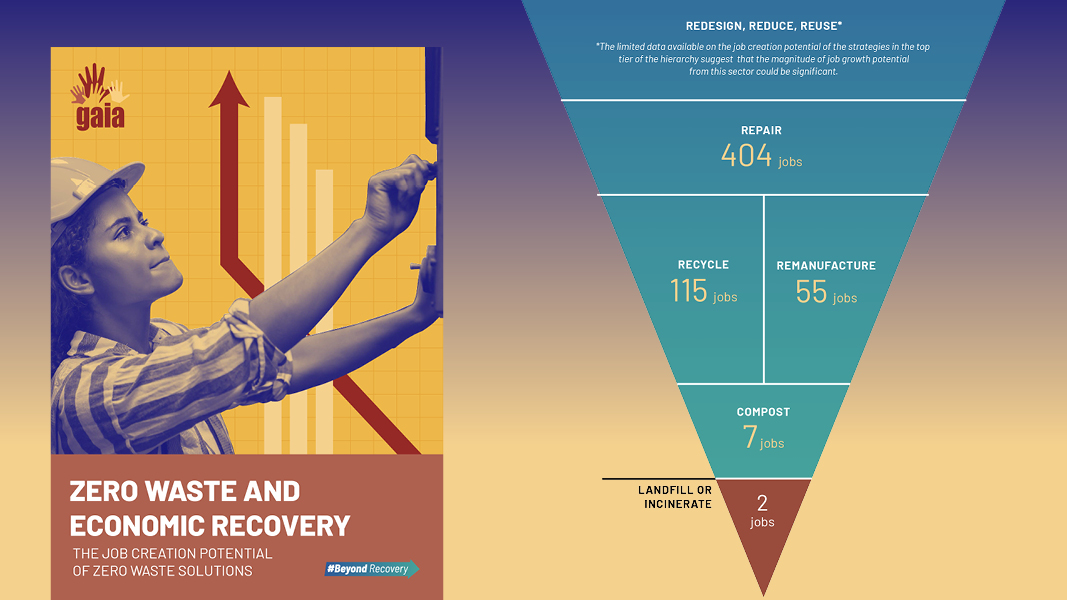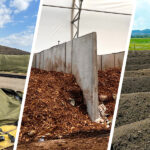A new study from GAIA, “Zero Waste And Economic Recovery,” finds cities that invest in zero waste programs and policies create good green jobs, in addition to known benefits of reducing pollution and improving community health. “Reuse creates over 200 times as many jobs as landfills and incinerators, recycling creates around 70 times as many jobs, and remanufacturing creates almost 30 times as many jobs,” notes the report, which collected data from a wide range of sources spanning 16 countries.
Following the waste hierarchy — a long-established ranking of waste management methods according to environmental impact — zero waste practices prioritize waste reduction, reuse, repair, recycling, and composting, in that order, and minimize disposal (incineration and landfilling). “This approach not only minimizes environmental harms, but is also significantly less expensive than systems that primarily burn or bury waste,” says the report. “Unlike incinerators and engineered landfills that require large investments for the build and upkeep of a centralized facility, zero waste systems, particularly in the Global South, tend to be decentralized and rely on local community led collection, sorting, recycling, and composting infrastructure, coupled with strong waste reduction policies. These zero waste systems result in both the creation of local jobs and a decrease in environmental pollution.”
Use of composting to manage organic waste generates an average of 6.6 jobs/10,000 tons/year (tpy). The data suggest that more mechanization at composting facilities leads to fewer jobs, e.g., a site in Lahore (Pakistan) that utilizes highly mechanized windrow composting has 2.7 jobs/10,000 tpy. In contrast, “the inclusion of jobs for waste collection, compost sales, and other products, in addition to standard compost processing contributes to the highest job figure —14 jobs/10,000 tpy — at a composting facility in Bali (Indonesia),” according to GAIA. “Composting is another highly cost-effective waste management practice. The composting operation in La Pintana (Chile) processes 20.5% of this local government’s waste, but only represents 2.4% of its solid waste budget, and generates the equivalent of 3 to 7 jobs/10,000 tpy.”













